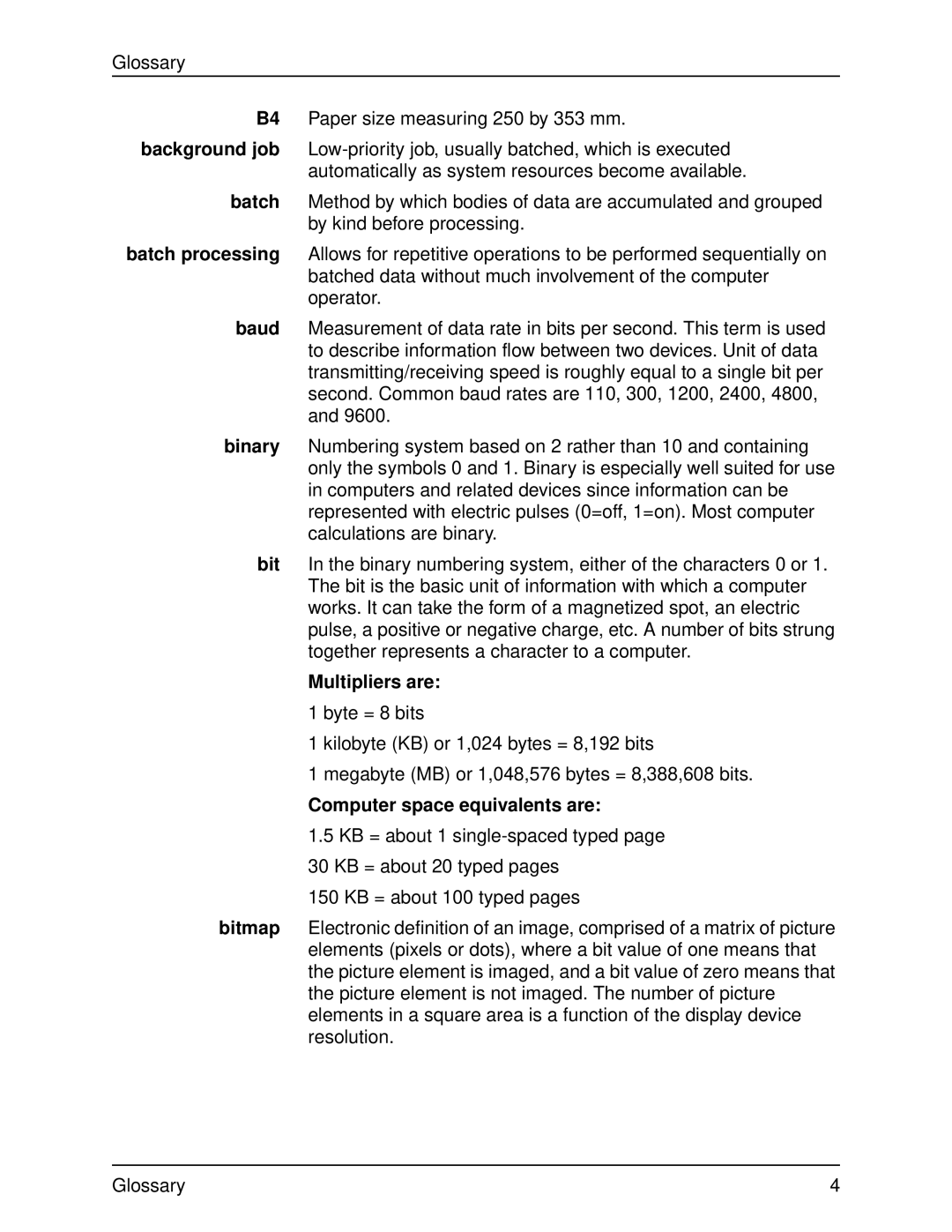
Glossary
B4 Paper size measuring 250 by 353 mm.
background job
batch Method by which bodies of data are accumulated and grouped by kind before processing.
batch processing Allows for repetitive operations to be performed sequentially on batched data without much involvement of the computer operator.
baud Measurement of data rate in bits per second. This term is used to describe information flow between two devices. Unit of data transmitting/receiving speed is roughly equal to a single bit per second. Common baud rates are 110, 300, 1200, 2400, 4800, and 9600.
binary Numbering system based on 2 rather than 10 and containing only the symbols 0 and 1. Binary is especially well suited for use in computers and related devices since information can be represented with electric pulses (0=off, 1=on). Most computer calculations are binary.
bit In the binary numbering system, either of the characters 0 or 1. The bit is the basic unit of information with which a computer works. It can take the form of a magnetized spot, an electric pulse, a positive or negative charge, etc. A number of bits strung together represents a character to a computer.
Multipliers are:
1 byte = 8 bits
1 kilobyte (KB) or 1,024 bytes = 8,192 bits
1 megabyte (MB) or 1,048,576 bytes = 8,388,608 bits.
Computer space equivalents are:
1.5KB = about 1
150 KB = about 100 typed pages
bitmap Electronic definition of an image, comprised of a matrix of picture elements (pixels or dots), where a bit value of one means that the picture element is imaged, and a bit value of zero means that the picture element is not imaged. The number of picture elements in a square area is a function of the display device resolution.
Glossary | 4 |
